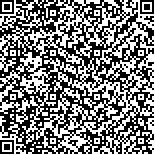| 引用本文: |
赖桂花,向婷婷,王菲,文玲,周芳,曹建雄.基于数据挖掘对中医内服方剂治疗骨转移癌痛证治规律的分析[J].湖南中医药大学学报,2021,41(4):586-592[点击复制] |
|
| |
|
|
| 本文已被:浏览 3252次 下载 2207次 |
| 基于数据挖掘对中医内服方剂治疗骨转移癌痛证治规律的分析 |
| 赖桂花,向婷婷,王菲,文玲,周芳,曹建雄 |
| (湖南中医药大学, 湖南 长沙 410208;湖南省中医药研究院附属医院, 湖南 长沙 410006;湖南中医药大学, 湖南 长沙 410208;湖南中医药大学第一附属医院 湖南 长沙 410007) |
| 摘要: |
| 目的 探讨中医内服方剂治疗骨转移癌痛的证治规律,为中医临床规范化诊疗提供参考依据。方法 检索中国知网数据库、中国生物医学文献数据库、维普数据库、万方数据库、PubMed数据库1989年至2019年采用中医内服方剂治疗骨转移癌痛的文献,通过中医传承辅助平台,使用数据挖掘技术对文献中证型、治法及处方用药进行归纳分析。结果 共筛选文献124篇,治疗骨转移癌痛内服方剂132首,总结中医证候22个,治法21种;涉及187味中药,高频药物有熟地黄、甘草、补骨脂、骨碎补、当归;四气以温、平、寒性多见;五味以甘、苦、辛为主;药物多入肝、肾、脾、心经;关联规则分析出高频药对组合47个;聚类分析得出核心药对8组,以及新处方4个。结论 骨转移癌痛中医病因病机以正虚为本,以血瘀、气滞、痰浊、癌毒、寒湿为标,病位以肾为主,涉及肝、脾及心,病理性质为本虚标实,临床上常以虚实夹杂常见;治则为补其不足以治本,损其有余以治标;遣方用药侧重于补益肝肾类,组方以配伍活血化瘀类、温阳散寒类为主,配伍虫类药物通络止痛是治疗骨转移癌痛的特色。 |
| 关键词: 骨转移癌 癌痛 方剂 数据挖掘 证治规律 |
| DOI:10.3969/j.issn.1674-070X.2021.04.015 |
| 投稿时间:2020-10-04 |
| 基金项目:湖南省重点研发计划项目(2018SK2127);湖南省中医药科研计划项目(201946)。 |
|
| Analysis on the Law of Syndrome and Treatment of Bone Metastasis Cancer Pain Treated by Oral Prescriptions of Traditional Chinese Medicine Based on Data Mining |
| LAI Guihua,XIANG Tingting,WANG Fei,WEN Ling,ZHOU Fang,CAO Jianxiong |
| (Hunan University of Chinese Medice, Changsha, Hunan 410208, China;The Affiliated Hospital of Hunan Academy of Traditional Chinese Medicine, Changsha, Hunan 410006, China;Hunan University of Chinese Medice, Changsha, Hunan 410208, China;The First Affiliated Hospital of Hunan University of Chinese Medice, Changsha, Hunan 410007, China) |
| Abstract: |
| Objective To explore the rules of syndromes and treatments of traditional Chinese medicine (TCM) oral prescriptions for bone metastasis cancer pain, and provides a reference for clinical standardized diagnosis and treatment. Methods CNKI database, China biomedical literature database, VIP database, Wanfang database and PubMed database were used to search literatures on the treatment of bone metastatic cancer pain with internal prescription of TCM from 1989 to 2019. Data mining technology was used to analyze the syndrome types, treatments and prescription drugs in the literature through the auxiliary platform of Chinese medicine inheritance inductive analysis. Results A total of 124 documents were screened. There were 132 TCM prescriptions for the treatment of bone metastasis cancer pain, 22 TCM syndromes and 21 treatment methods were summarized; 187 traditional Chinese medicines were involved. High frequency medicines included Shudihuang (Rehmanniae Radix Praeparata), Gancao (Glycyrrhizae Radix Et Rhizoma), Buguzhi (Psoraleae Fructus), Gusuibu (Drynariae Rhizoma), Danggui (Angelicae Sinensis Radix); the four qi were more common in warm, calm, and cold; the five flavors were mainly sweet, bitter, and pungent; most of the drugs entered the liver, kidney, spleen, and heart meridian; association rules analyzed 47 high frequency drug combinations; cluster analysis showed 8 core drug pairs and 4 new prescriptions. Conclusion Bone metastasis cancer pain TCM etiology and pathogenesis are based on right deficiency, with blood stasis, qi stagnation, phlegm, cancerous toxicity, cold and dampness as the markers, the disease location is mainly kidney, involving the liver, spleen and heart, and the pathological nature is deficient root and excessive superficial, deficiency-excess in complexity are common in clinical practice; the treatment is to make up for its inadequacy to cure the root, and to treat the symptoms if it is damaged; the prescription focuses on replenishing the liver and kidney, and the prescription is compatible with activating blood and removing blood stasis, warming yang and dispelling cold. The characteristic of treating bone metastatic cancer pain is to use insect drugs to clear collaterals and relieve pain. |
| Key words: bone metastasis cancer cancer pain prescriptions data mining syndrome and treatment rules |
|

二维码(扫一下试试看!) |
|
|
|
|




